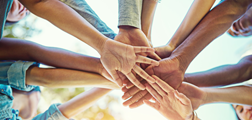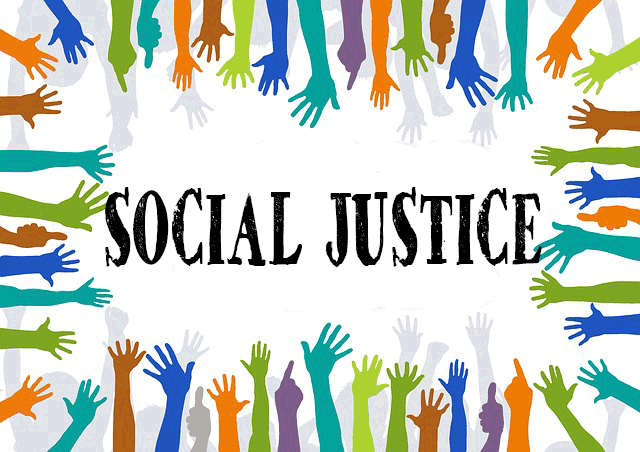-
The recent racially motivated hate crime at the Tops supermarket in Buffalo New York in which the perpetrator targeted a Black community and has expressed white supremacy and anti-Semitic leanings has evoked a range of emotions and concerns of safety across the United States. In response to this event, the National Child Traumatic Stress Network has developed resources to help children, families, and communities navigate what they are seeing and hearing, acknowledge their feelings, and find ways to cope together. These resources are listed below.

-
For Teens: Coping After Mass Violence(En Español)
Assisting Parents/Caregivers in Coping with Collective Traumas
Helping Youth after Community Trauma: Tips for Educators(En Español)
Addressing Race and Trauma in the Classroom: A Resource for Educators
Talking with Children about Hate Crimes and Anti-Semitism
Parent Guidelines for Helping Youth After Mass Violence
Talking to Children about Mass Violence
Teacher Guidelines for Helping Students after Mass Violence
Psychological Impact of Mass Violence
Racial Injustices and Trauma: African Americans in the US: NCTSN Position Statement
Helping Teens with Traumatic Grief: Tips for Caregivers(En Español)
Helping School-Age Children with Traumatic Grief: Tips for Caregivers (En Español)
Helping Young Children with Traumatic Grief: Tips for Caregivers(En Español)
The Power of Parenting: How to Help Your Child After a Parent or Caregiver Dies
After a Crisis: Helping Young Children Heal
Age-Related Reactions to a Traumatic Event
Once I Was Very Very Scared – children’s book for young children
Pause-Reset-Nourish (PRN) to Promote Wellbeing (En Español) (for responders)

-
The NCTSN also has resources for responders on Psychological First Aid (PFA; En Español). PFA is an early intervention to support children, adolescents, adults, and families impacted by these types of events. PFA Mobile and the PFA Wallet Card (En Español) provide a quick reminder of the core actions. The PFA online training course is also available on the NCTSN Learning Center. PFA Handouts include:
Parent Tips for Helping Infants and Toddlers (En Español)
Parent Tips for Helping Preschoolers (En Español)
Parent Tips for Helping School-Age Children (En Español)
-
Transcend (mobile app to assist with recovery after mass violence)
Rebuild your Community: Resources for Community Leaders
Media Guidelines for Homicide Family Survivors
Timeline of Activities to Promote Mental Health Recovery
Self-Help: Resources for Survivors
-
SAMHSA has a Disaster Distress Helpline - call or text 1-800-985-5990 (for Spanish, press “2”) to be connected to a trained counselor 24/7/365.
-
Social Emotional Learning Guidance Video
As we continue to welcome our scholars back to school, we want to ensure that Social-Emotional Learning (SEL) is highlighted. Academics are the heart, however, it needs oxygen and blood to pump. SEL must be at the forefront as well.
Below is a video you can share with your school community that will provide them with a brief overview of SEL, trauma, ways to support our scholars, and resources for self-care.

-
Lesson Plan Samples from RCSD Roberto Clemente School #8
Roberto Clemente school staff created several activities that could be utilized with students in grades 4-8.
-
Blog post on intersection of mental health, social justice:
A leader committed to the mental health and healing of black communities shares his insights.
-
Mental Health Support for Students of Color During and After the Coronavirus Pandemic
Amid concentrated job losses and financial insecurity, disproportionate rates of contracting and becoming seriously ill from COVID-19, and nationwide protests in response to centuries of racial injustice and anti-Black racism, the past few months have exacerbated the already disparate mental health needs of many Black, Indigenous, and non-Black people of color (BIPOC). In particular, BIPOC students are experiencing all of these traumas on top of the isolation of social distancing and remote learning.
-
Addressing Race and Trauma in the Classroom
This resource is intended to help educators understand how they might address the interplay of race and trauma and its effects on students in the classroom.
After defining key terms, the guide outlines recommendations for educators and offers a list of supplemental resources.
-
Lessons & Activities to discuss policing and the history of policing
General questions to ask about policing and discussion topics to facilitate with your students.
-
Helping Kids Deal with Disturbing News
5 Ways to Help Kids Deal With Disturbing News: Age-based tips on how to talk to kids about worrying news events.
-
Mindful Moments Family Web Series
In collaboration with Peaceful Schools, we are excited to release a series of videos highlighting mindfulness strategies for everyone. These easy to follow videos demonstrate practices that we can learn to reduce stress and share with the people we love to support their mental wellness, too. Each video focuses on a mindful practice, explains the physical and mental health benefits, and includes a basic yoga pose to incorporate into the mindful practice as an option.
-
Supporting Child's Mental Health: Tips for Educators, Parents
Create a sense of belonging. Feeling connected and welcomed is essential to children's positive adjustment, self-identification, and sense of trust in others and themselves. Building strong, positive relationships among students, school staff, and parents is important to promoting mental wellness.
-
Self-Care for Teachers of Traumatized Students
It can be difficult for educators, who are so often over-tasked and under-resourced, to prioritize self-care. But doing so is incredibly important and beneficial, both for educators and their students, especially when it comes to supporting students affected by trauma. Teaching is emotional labor, so here are some ways for trauma-informed educators to cope, care for themselves, and prevent burnout.
-
Stress, Anxiety, and Adjustment Disorders in Children
There isn’t a perfect definition of stress, but it is a common feeling these days. Why are we experiencing so much of it? Dictionaries define stress as the feelings that result from pressure or tension. Stress is a very normal part of life. When big events happen on a global scale everyone feels more stressed!
-
How to Make this Moment the Turning Point for Real Change
As millions of people across the country take to the streets and raise their voices in response to the killing of George Floyd and the ongoing problem of unequal justice, many people have reached out asking how we can sustain momentum to bring about real change.
-
BrainPOP: Helping Kids Understand the Black Lives Matter Movement
At BrainPOP, we are devastated and deeply disturbed by the senseless murder of George Floyd and many other Black Americans. We stand in solidarity with the Black community in declaring that Black Lives Matter and we are inspired by the thousands upon thousands of people coming together to demand justice in protests across the country and around the world.
-
Free guide released to help parents talk to children about Black Lives Matter
There’s so much going on in the world right now, it can be tough to face the newscycle as a fully grown adult - let alone for young people and children. As a parent, it can be tough to know just how much children are hearing, seeing, and understanding. In the midst of one of the biggest civil rights, how do we judge what our children need to know about?
-
How to be an Ally
There are good ways — and there are less good ways — to be a white ally right now. Do take cues from black leaders and create space for their voices to be heard. Don’t think a performative emotional post on Instagram about your knowledge of racism does the trick. Do not center your feelings during this time of social unrest — an uprising that’s about racist violence against black Americans.
-
Additional Resources
For additional information, lesson plans and resources, please take a look below or visit the Roc Restorative page at the following link:
Restorative Circles
Discussions with Colleagues


